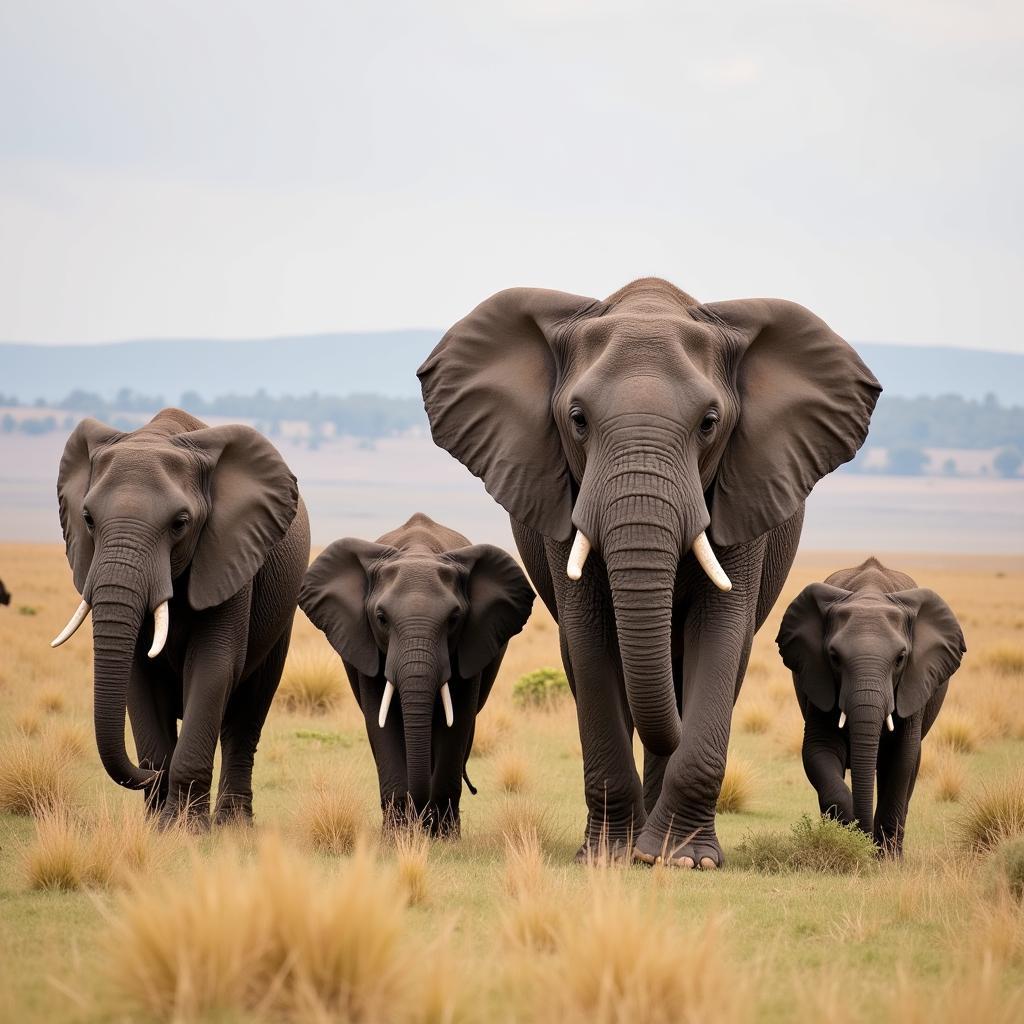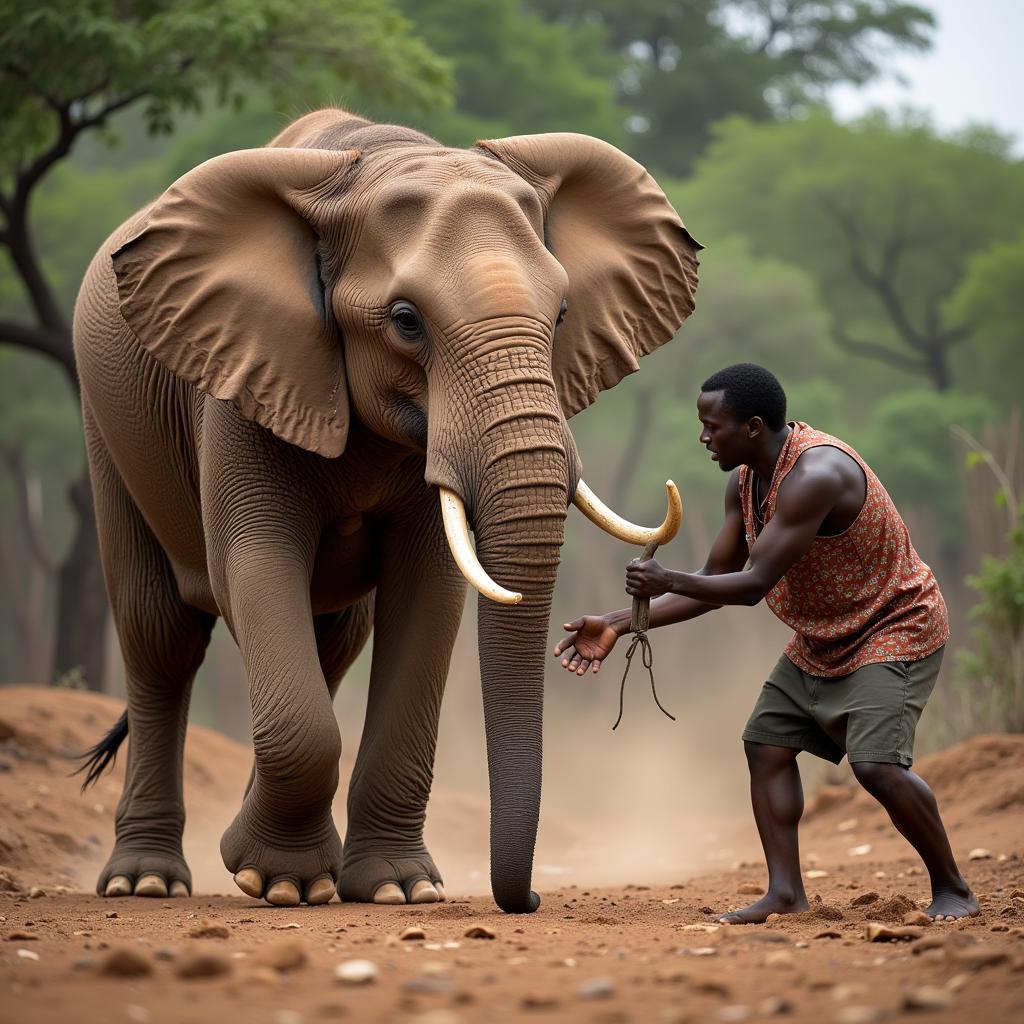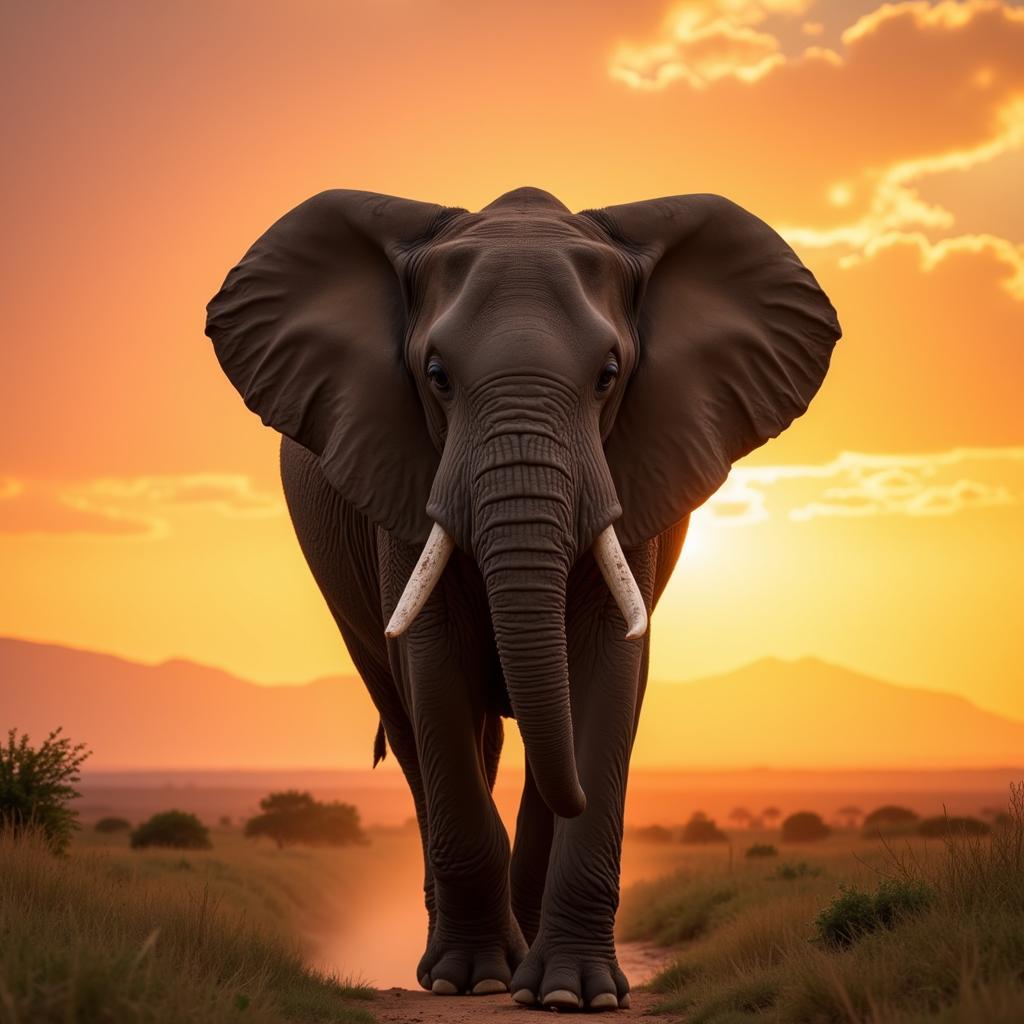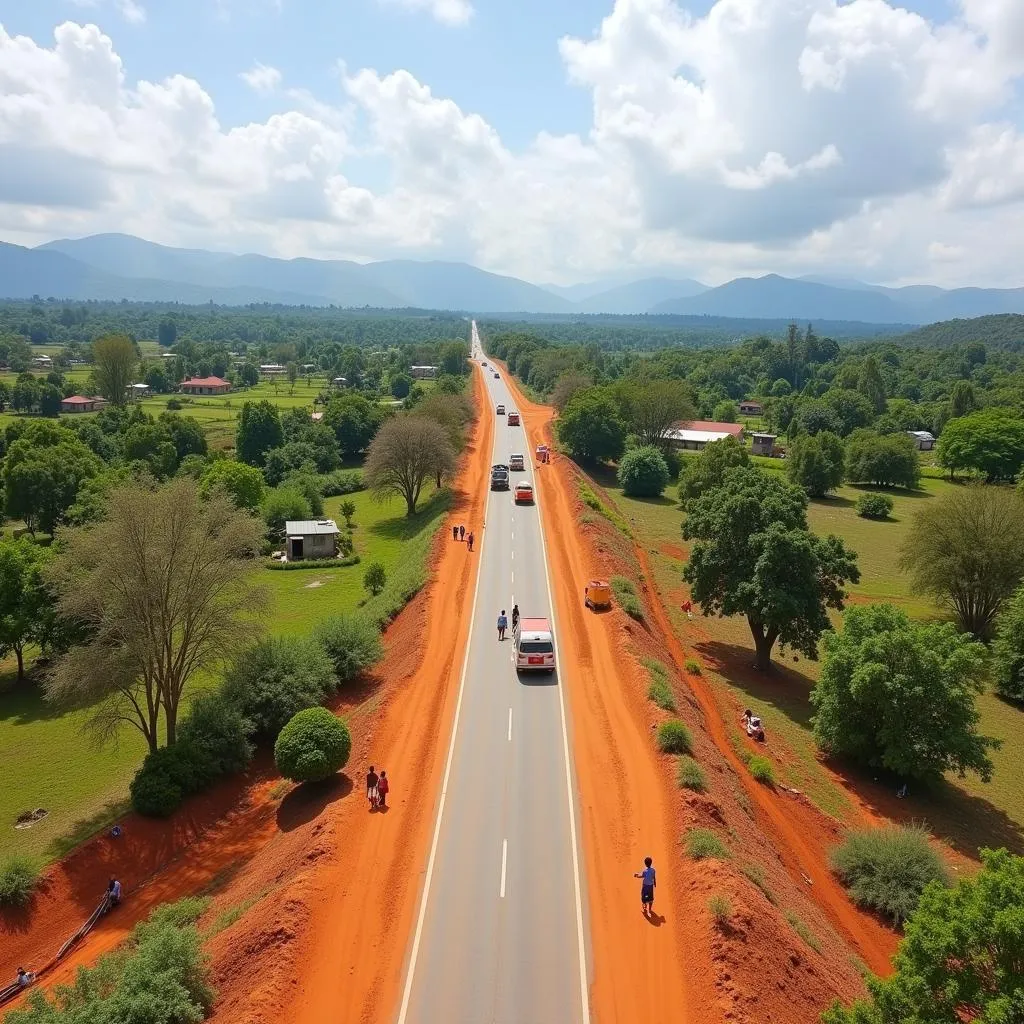The Truth About African Elephant Domestication
For centuries, the majestic African elephant has captivated the human imagination. Its size, intelligence, and social complexity inspire awe and wonder. It’s no surprise then that the question of domestication arises. Can these magnificent creatures be tamed and trained like their Asian counterparts? The answer, unfortunately, is far more complex than a simple yes or no.
 African Elephant Family Group
African Elephant Family Group
The Myth of Domestication
While history is rife with tales of African elephants used in war or for labor, true domestication remains elusive. Unlike Asian elephants, which boast a longer history of interaction with humans, their African relatives haven’t undergone the same selective breeding process over generations. This crucial distinction clarifies the reality: African elephants are not domesticated animals.
The individuals observed working alongside humans are often captive-born or captured from the wild at a young age. Subjected to intensive training and often harsh treatment, these elephants learn to obey commands out of fear or necessity, not through genuine domestication.
Why African Elephant Domestication Is Difficult
Several factors contribute to the challenges of domesticating African elephants:
- Longer Generation Time: African elephants have a longer lifespan and reproductive cycle than Asian elephants, making selective breeding a more protracted and demanding process.
- Temperament: While intelligent, African elephants are known for their unpredictable temperament and can exhibit aggression, particularly males during musth – a period marked by hormonal surges.
- Social Structure: African elephant herds have complex social structures, primarily led by matriarchs. Disrupting these social bonds through captivity can lead to psychological distress and behavioral issues.
 African Elephant Training Controversy
African Elephant Training Controversy
The Ethics of Captivity
The debate surrounding African Elephant Domestication is intertwined with the ethics of keeping these animals in captivity. Animal welfare advocates argue that confining such intelligent and socially complex creatures to zoos or using them for entertainment is inherently cruel.
The limited space, restricted social interaction, and unnatural environment can negatively impact their physical and psychological well-being. Furthermore, the methods employed to train and control captive elephants often involve physical punishment and coercion, raising further ethical concerns.
Conservation: A Shared Responsibility
Instead of seeking to domesticate the African elephant, the focus should be on protecting their dwindling populations in the wild. Habitat loss, human-wildlife conflict, and poaching driven by the ivory trade pose significant threats to their survival.
Supporting organizations involved in anti-poaching efforts, habitat conservation, and community education is crucial to ensuring the future of these magnificent creatures. By understanding the complex challenges of African elephant domestication, we can better appreciate the importance of safeguarding their wild populations for generations to come.
 African Elephant Roaming Free
African Elephant Roaming Free
Conclusion
While the allure of domesticating the African elephant might linger, respecting their wild nature and focusing on their conservation is paramount. By understanding the ethical and logistical complexities involved, we can redirect our efforts towards ensuring a future where these majestic animals continue to roam free in the African wilderness. Let us work together to protect the African elephant, not for our benefit, but for theirs.
FAQs
- Is it possible to own an African elephant as a pet? No, owning an African elephant as a pet is illegal in most countries due to conservation concerns and the specialized care they require.
- Are there any domesticated African elephants in the world? No, unlike their Asian counterparts, there are no truly domesticated African elephants.
- How can I help protect African elephants in the wild? You can support organizations involved in anti-poaching efforts, habitat conservation, and community education programs.
For any assistance, please contact Phone Number: +255768904061, Email: kaka.mag@gmail.com Or visit us at: Mbarali DC Mawindi, Kangaga, Tanzania. We have a dedicated customer support team available 24/7.
